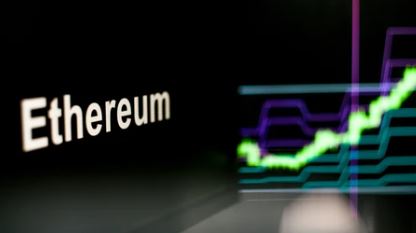“If buying and selling is the only thing we can do, it has to be the only thing we can do wrong. And if problems start to emerge from those basic actions, we had better look into them carefully. Any transaction in financial markets is the consequence of orders being executed.” – Dirk Vandyke

The market is a dynamic and very interesting environment, as its revolutionary charts reveal trends, consolidations and reversal in greater details. A few decades ago, Forex trading was available to large financial institutions. But now individuals can open private accounts to play the markets. Depending on the broker you choose, you can open micro, mini or standard accounts. You can fund a small account with as small as $100 or $50 or $20 or $10 or $5 or even $1. Though I’d say that if your account is too small, you shouldn’t expect to make thousands of dollars from it in a short period of time. That being said, it pays to open a very small account and feel the realities of the currency markets, especially if you’re a beginner trader. The examples in these articles are excellent practical guide for traders.
Micro accounts are great for those starting out and for those who don’t as much money as they’d like to trade Forex. It’s great when you’ve your account denominated in cents. More interestingly, your account can be denominated in nano cents. What’s this? What are the advantages?
Some brokers offer nano-cent accounts. As a general guide, you’d need to ask your broker whether they offer this type of account.
Typical Features and Advantages of Nano-cent Accounts
1. $1 = 1000 nano points
2. Very low spreads on popular pairs and crosses. Spread from 3 pip.
3. Depending on your equity, you can choose any of these leverages on your nano-cent account:
1:20
1: 50
1:100
1:200
1:500
1:1000
4. Leverage:
Equity from 0 to 3000-1:1000
Equity from 3001 to 5000 – 1:500
Equity from 5001 to 10000 – 1:200
Equity from 10001 to 15000 – 1:100
Equity from 15001 to 20000 – 1:50
Equity from 20001 and above – 1:20
5. Maximum position size: 1 standard (1000 nano) lots.
6. Maximum number of orders: 50.
7. Contract sizes: 0.01 (micro), 0.1 (mini), 1 standard.
8. Scalping is allowed under most circumstances. Other strategies, including Martingale, are also allowed under most circumstances.
9. All EAs are allowed.
10. No swaps or commissions.
11. The minimum deposit is $1
12. Execution – No Dealing Desk Automatic Market Based Execution
These features differ from broker to broker, yet there are similarities in some cases. With this features on so small accounts, you can practise excellent money management flexibility. However, don’t forget that you shouldn’t expect huge profits from so small accounts.
Conclusion: How you pay your bills is even more important than how you make profits from the markets. You could have thought that the gains you make in the currency markets would help cater for you and your folks. However, the profits (if there are any) mayn’t even be enough to cover your basic expenses. If you obtain a loan or overcharge your credit card or evade some pecuniary duties because you want to fund a trading account, the burden on you will skyrocket and you’ll find it not easy to trade logically. If your family or mate looks unto you for sustenance and you can’t pull the trigger in the markets, not to mention making money, it may strain your domestic affairs, most often if your mate has some misgivings about Forex. Cash matters in the family, and if you’re under strain to earn more cash as a Forex trader, it won’t improve any stats. If you’ve people supporting your trading ideas, it’ll be easy for you to survive the vicissitudes the markets will throw at you.
I’d prefer to conclude this article with quotes from Joe Ross:
1. “If you have any bad habits, expect the market to discover them and destroy you with them. In the business of trading, you have to take every step possible to save yourself the pain of having the markets discover your weaknesses.”
2. “If you are losing money, it’s because you don’t actually understand losing! Believe it or not, there’s an art to losing in the market. You have to learn how to control your losses — when you do, the wins will take care of themselves!”














